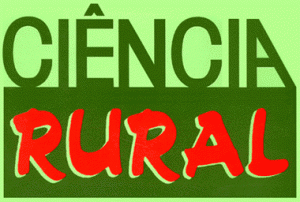By Octavio Alonso Castelán Ortega, Universidad Autonoma del Estado de Mexico, Faculty of Veterinary Medicine, Toluca, Mexico
The study “Pithecellobium dulce, Tagetes erecta and Cosmos bipinnatus on reducing enteric methane emission by diary cows” published on Ciência Rural (vol. 48, no. 10) had the aim to evaluate the effect of Pithcecellobium dulce, Tagetes erecta and Cosmos bipinnatus on the methan emission, milk yield and dry matter intake in dairy cattle. To do so, the researchers designed a 92 day Latin Square experiment divided in four experimental periods of 23 days each with four Holstein cows. All cows had free access to maize and alfafa silage. Three animals were fed with 0.5 kg/day of the experimental plants and one remained as control without supplementation. Each cow received on of each treatment in turn during one of the four periods.
The C. bipinnatus reduced methan production by 16% in comparison with the control diet. Also interesting finding is that milk production, milk composition and dry matter intake were not affected by the use of the tested plants.
According to the researcher Octavio Alonso Castelán Ortega, the research presents an sustainable option for significantly reducing enteric methane emission from dairy cattle. Cosmos bipinnatus is a weed seasonal non-cultivated plant that grows abundantly in Central Mexico. It may be provided in large scale to comercial cattle farms in mitigation policies for this gas. Octavio reminds that cattle are the largest producers of methane and nitrous oxide in the agricultural sector. Finding sustainable alternatives to reduce the emission of this gas can help mitigating climate change. Beauchemin, et al. (1990) and Patra and Saxena (2010) investigated the use of plant extracts to reduce the methane production by cattle. However, this is the first time that C. bipinnatus is tested.
References
BEAUCHEMIN, K.A. et al. Use of condensed tannin extract from quebracho trees to reduce methane emissions. J Anim Sci [online]. 2007, vol. 85, no. 8, pp. 1990-1996, e-ISSN: 1525-3163 [viewed 4 December 2018]. DOI: 10.2527/jas.2006-686. Available from: https://www.ncbi.nlm.nih.gov/pubmed/17468433
PATRA, A.K. and SAXENA, J. A new perspective on the use of plant secondary metabolites to inhibit methanogenesis in the rumen. Phytochemistry [online]. 2010, vol. 71, n. 11-12, pp. 1198-1222, ISSN: 0031-9422 [viewed 4 December 2018]. DOI: 10.1016/j.phytochem.2010.05.010. Available from: https://www.ncbi.nlm.nih.gov/pubmed/20570294
To read the article, access it
PINEDA, G.S.H., et al. Pithecellobium dulce, Tagetes erecta and Cosmos bipinnatus on reducing enteric methane emission by dairy cows. Cienc. Rural [online]. 2018, vol. 48, no. 10, e20170484, ISSN: 0103-8478 [viewed 4 December 2018]. DOI: 10.1590/0103-8478cr20170484. Available from: http://ref.scielo.org/z66crt
External link
Ciência Rural – CR: <http://www.scielo.br/cr>
Como citar este post [ISO 690/2010]:
















Recent Comments